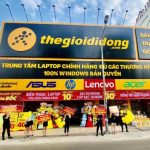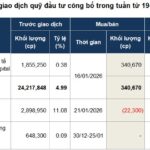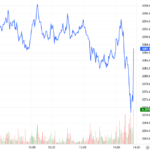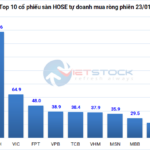In recent years, Vietnam has been actively fostering the development of its innovation and startup ecosystem, aiming to become a dynamic hub in the region.
REMOVING BARRIERS AND CREATING CONDITIONS TO PROMOTE INNOVATION IN VIETNAM
However, promoting innovation in Vietnam still faces certain challenges, according to experts and managers at the workshop “Enterprises – Institutes and Schools jointly develop the Innovation Ecosystem” held recently.
As a unit that has been implementing many innovation support projects, Ms. Trang Tran, Project Management Director of Vingroup Innovation Foundation, emphasized the barriers related to policies and legal issues.
According to Ms. Tran, lecturers who conduct research in institutes and schools and commercialize their products themselves are facing certain difficulties. In fact, up to now, the removal of these barriers is still in progress, and it is very difficult for lecturers to establish businesses and startups to commercialize their products. This also limits the culture of innovation and entrepreneurship in schools.
“We found that many research groups, after receiving funding and developing products, are encouraged and connected to continue commercialization, but many groups are not ready. They have not changed the research culture, which means that after producing the product, they need to continue the steps to commercialize that product,” said the representative of Vingroup Innovation Foundation.
Regarding legal barriers and regulations in product commercialization, Mr. Pham Tuan Hiep, Director of BK Holdings Incubator, said that many research members are civil servants of public universities, so they are not allowed to be directors or chairmen of companies when they participate in their establishment.
Another difficulty is that many research results have mixed ownership, including ownership of the public institution or university where they work. This makes it very difficult to evaluate, value, and transfer mixed ownership into the company.
Another typical case is that of state-owned corporations and companies when implementing innovations. Petrolimex is currently a group with 75% state ownership, and the rest is held by a foreign strategic investor. Petrolimex’s representative said that for businesses with dominant state ownership, there are many barriers and challenges to innovation.
Although the group’s leaders encourage the promotion of innovation, they face legal barriers, decrees, and regulations on the use of state capital.
In addition, state-owned enterprises often have a long history and a strong corporate culture. Therefore, these organizations are not easy to shift. For example, Petrolimex also wants to learn from gas stations in foreign countries, with only 1-2 people operating and non-cash payments. However, this is difficult to implement in Vietnam, and it is also impossible to suddenly reduce the number of sales staff.
Ms. Le Minh Anh, Head of Enterprise Support Division, Vietnam National Innovation Center (NIC), said that large enterprises, small and medium-sized enterprises, or startups have their own “pain points” in this regard.
For example, corporations and groups have the finances but cannot innovate much due to a lack of policy solutions. Small and medium-sized enterprises (SMEs) face the issue of lacking funds.
Meanwhile, startups want to grow rapidly and create new products to keep up with today’s market, often scientific and technological products, innovative products, or even products that have never been on the market. However, although they are innovative, they struggle with who will recognize, allow, and license their products to be marketed.
INNOVATION CAPACITY IS A NATIONAL FACTOR, NOT JUST A BUSINESS ISSUE
Mr. Tran Tri Dung, Program Manager at the Swiss Entrepreneurship Program, said that in reality, all enterprises must innovate because, without innovation, they cannot survive. According to Mr. Dung, since 2021, the European Union has affirmed that innovation capacity is considered an element of national sovereignty, not just a business issue.
As a company currently expanding its business in Vietnam, Ms. Moon Min, CEO of Next Challenge Foundation, a Korean startup accelerator, said there are certain barriers in terms of regulations and legal issues.
“Although the Vietnamese government is very keen to attract more technology companies and green businesses to Vietnam, the current regulations and decrees can make it difficult for businesses to understand and comply with. This creates a significant barrier for companies wishing to operate in Vietnam,” said Ms. Moon Min.
“However, I believe the Vietnamese government is doing a great job of overcoming these challenges and setting up regulations to encourage innovative startups. I believe that if the government continues to support and build suitable infrastructure, they will create a more positive and favorable business environment for enterprises.”
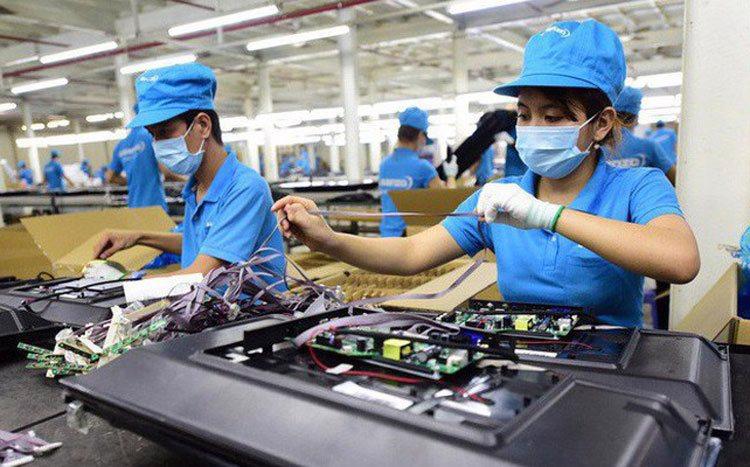
Sharing about the situation in South Korea, Ms. Moon Min said that the government always tries to support universities, educate students about innovation and entrepreneurial thinking, and help students understand how to do business and create positive impacts on society. However, despite many innovations, South Korea is still facing complex social issues.
“With strong development and good preparation in technology and ideas, the South Korean market is highly competitive,” said Ms. Moon Min.
Innovation is considered one of the central factors in the development orientation of each country, including Vietnam. The Party and State have formulated a strategy for socio-economic development for the period 2021-2030, with the main driving force being science, technology, and innovation.
According to Mr. Do Tien Thinh, Deputy Director of the National Innovation Center, Vietnam is becoming increasingly attractive to investors. One of the main reasons is the expanding innovation environment in Vietnam.
“This is similar to many enterprises choosing to establish themselves in Singapore, not only because of the tax incentives but also because of the supportive innovation environment. Vietnam now also has a similar opportunity, especially in the past year, when Vietnam’s institutions and policy processes have never changed so positively and strongly for innovation,” said Mr. Do Tien Thinh.
The most extensive bribery case ever in Thanh Hoa: Numerous suspects prosecuted for “Giving and Receiving Bribes”
The Provincial Security Investigation Agency (PSIA) of Thanh Hoa province announced on January 31st that it has made the decision to initiate a prosecution against 23 individuals in connection with the offenses of “Accepting bribes” and “Giving bribes” as stipulated in Article 354(3) and Article 364(2) of the Criminal Code.
Mobile World achieves revenue of VND118,000 trillion: TVs, tablets, and phones all decrease by 10% – 50%, while one product grows in both quantity and revenue.
Mobile World Investment Corporation (MWG) has recently announced its 2023 business results. According to the report, the company’s consolidated revenue reached over 118 trillion Vietnamese dong, equivalent to 89% of the revenue in 2022.




